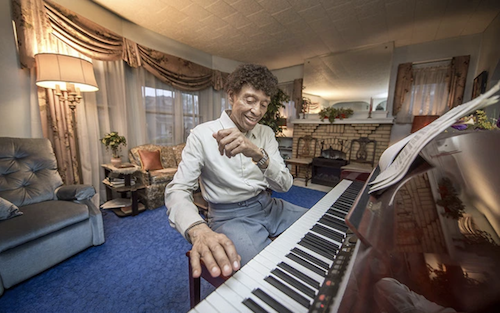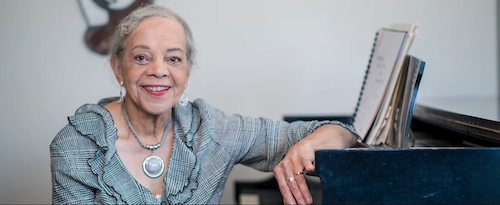by Jarrett Hoffman
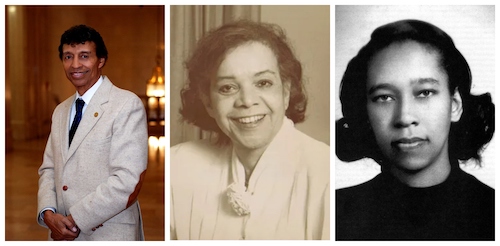
First, time has passed, and the rescheduled date is not far away: early next month. Second, the concert’s companion program, “Honoring Black Composers,” has found a new setting of its own, or rather three new settings. A very good thing, because the first date, an hour-long program on May 24 at Karamu House, has already sold out.
That still leaves you with two options. On Friday, May 27 at 6:30 pm and Saturday, May 28 at 7:00 pm, the program will move to Reinberger Chamber Hall at Severance, albeit in a slightly different form: a half-hour concert of music by Brian R. Nabors, Dolores White, George Walker, Melika Fitzhugh, H. Leslie Adams, and William Grant Still.
Those shows will be presented as preludes to the Orchestra’s two-part “Breaking Convention” program, divided up between Friday and Saturday, so you’ll need tickets to the evening’s Mandel Hall concert to get into Reinberger.
Back in January, just a couple of days after the new year, I had the opportunity to speak with violinist Isabel Trautwein, one of the two artistic leads on the project in addition to Emma Shook. Our conversation centered around the two Cleveland-based composers on what is now the Reinberger program.
Having previously programmed excerpts from H. Leslie Adams’ music drama Blake during a concert in 2021, here Trautwein turned her curatorial attention to a piece from much earlier in the composer’s career: his Sonata for Violin and Piano, in particular the third-movement Allegro.
“His composing career now spans 70 years, which is absolutely mind-boggling to me,” Trautwein said. “He’s written so much interesting music, and this violin sonata is fabulous. We’re doing one movement — it’s jazzy, and there’s often something very spunky and rhythmical going on. He has a very interesting textured approach to rhythm, where it provides the undercurrent to these sweeping melodies.”
Trautwein herself will take up the third movement of Dolores White’s solo piece Blues Dialogues, a work she discovered last year after finding out that it had been performed by Oberlin violin professor David Bowlin and a number of his students.
Clearly, Blues Dialogues not only made an impression on Bowlin and Trautwein, but also on violinist Rachel Barton Pine. She included it on her 2018 album of blues-influenced music by Black composers. The album’s title? Blues Dialogues. “Every single piece on that CD is fabulous, and so many different styles are represented,” Trautwein said.
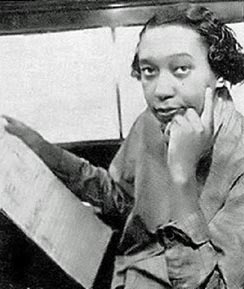
“I sent him a recording of this piece — a recording that was actually done at the Maltz Center a couple years ago through their series — and Josh said he’d really like to play it, so I’m very excited. I hope that awareness of her music will increase.”
That brought us to a broader topic: Black composers whose music has been neglected. “I don’t know how this has happened in classical music, that so much music has just not been played,” Trautwein said. “It feels almost like the canon has gotten narrower rather than wider. I think this is a moment of reckoning to see that we’ve not only deprived others, but we’ve deprived ourselves of hearing this music.”
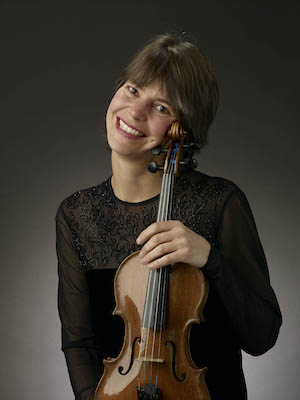
The parallels with the U.S. have become obvious to Trautwein. “Not only does Germany have a difficult past, but this country has an incredibly difficult past to look back at.” And not just the past. “Also the ongoing racism in our communal life and in classical music itself.”
Trautwein pointed out that slavery existed in America for 250 years. “So unfathomably long,” she said. “And we haven’t made nearly the progress that someone like Martin Luther King would have hoped for. But we need to push forward, and this is the time. Composers like Dolores White and H. Leslie Adams are local, celebrated, and everyone acknowledges that they’re fabulous. Well then, let’s play their music more often.
“Children in this city need to know that the times are changing. And if my voice can be just a tiny part of that, then I’ll be very grateful.”
In addition to the works by Adams and White, the prelude concerts in Reinberger will include two movements each from Nabors’ Ohio Sketches String Quartet and Still’s Danzas de Panama, as well as Fitzhugh’s Love in the Time of Covid-19 and the Molto adagio from Walker’s String Quartet No. 1.
Published on ClevelandClassical.com May 18, 2022.
Click here for a printable copy of this article



